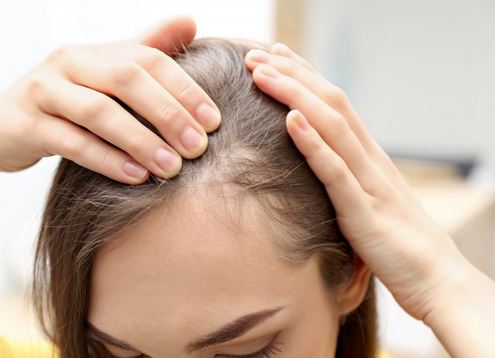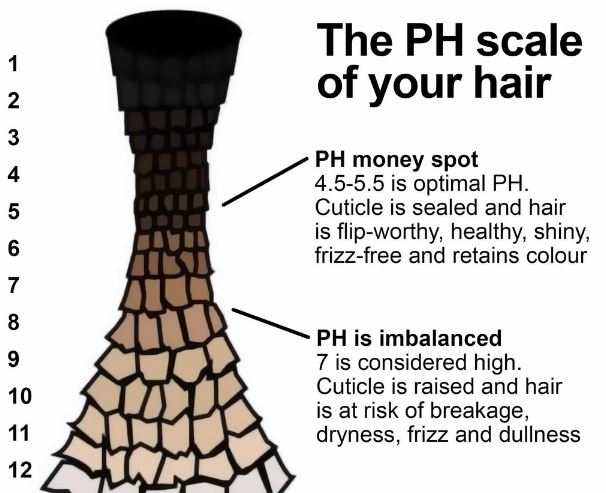How to Combat Hair Loss | |

| |
Hair loss can be a distressing experience for both men and women. While it is natural to lose some hair daily, excessive hair loss can lead to thinning hair and noticeable bald patches. Fortunately, there are various strategies and treatments available to combat hair loss and promote hair regrowth. In this article, we will discuss effective methods to combat hair loss and restore healthier, fuller-looking hair. Understanding Hair LossHair loss, or alopecia, can occur due to several factors, including genetics, hormonal changes, nutritional deficiencies, stress, and certain medical conditions. It is essential to identify the underlying cause of your hair loss before implementing any treatment methods. Consulting with a healthcare professional or dermatologist can help determine the best course of action. Tips for Combating Hair Loss1. Maintain a Healthy DietEating a balanced diet rich in essential nutrients is crucial for healthy hair growth. Include foods that are high in vitamins, minerals, and proteins, such as leafy greens, fruits, lean meats, and legumes. Consider incorporating supplements like biotin, zinc, and vitamin D, after consulting with a healthcare professional, as they can support hair health. 2. Avoid Excessive Heat Styling and Chemical TreatmentsExcessive heat styling and chemical treatments can weaken the hair and contribute to hair loss. Limit the use of hot tools like curling irons and straighteners, and opt for heat protectant sprays when styling. Minimize chemical treatments like perming, relaxing, or coloring, as they can damage the hair follicles and lead to hair loss. 3. Be Gentle with Your HairHandle your hair with care to avoid unnecessary tension and breakage. Avoid vigorous brushing or combing, especially when the hair is wet, as it is more prone to breakage at this time. Use a wide-toothed comb or a brush with soft bristles to detangle your hair gently. Additionally, avoid hairstyles that pull tightly on the hair, such as ponytails or buns, as they can contribute to hair loss. 4. Practice Stress ManagementChronic stress can contribute to hair loss. Find healthy ways to manage stress, such as engaging in regular exercise, practicing meditation or mindfulness techniques, getting enough sleep, and seeking support from loved ones or a professional therapist. By reducing stress levels, you can help minimize hair loss and promote overall well-being. 5. Consider Scalp MassageScalp massage can stimulate blood flow to the hair follicles, promoting hair growth. Gently massage your scalp using your fingertips in circular motions for a few minutes each day. You can also use natural oils like coconut oil, jojoba oil, or castor oil during the massage to nourish the scalp and hair follicles. 6. Explore Hair Loss TreatmentsThere are various hair loss treatments available, depending on the cause and severity of your hair loss. Some options include topical treatments containing minoxidil, prescription medications like finasteride, low-level laser therapy, and hair transplant procedures. Consult with a dermatologist or hair loss specialist to discuss the most suitable treatment options for your specific needs. FAQs about Hair LossFAQ 1: Can hair loss be reversed?In some cases, hair loss can be reversed or slowed down with appropriate treatment. However, it is important to note that not all types of hair loss are reversible. Consulting with a healthcare professional or dermatologist can help determine the best course of action based on your individual circumstances. FAQ 2: Are there natural remedies for hair loss?While there are no guaranteed natural remedies for hair loss, some people find that using natural ingredients like onion juice, aloe vera, or rosemary oil can help stimulate hair growth. However, it is important to approach natural remedies with caution and consult with a healthcare professional before using them. FAQ 3: Can hair loss be prevented?While it may not be possible to prevent all types of hair loss, adopting a healthy lifestyle, avoiding excessive heat styling and chemical treatments, managing stress, and maintaining a nutrient-rich diet can help promote healthier hair and reduce the risk of excessive hair loss. FAQ 4: How long does it take to see results from hair loss treatments?The timeframe for seeing results from hair loss treatments can vary depending on the treatment method used and individual factors. In general, it may take several months to a year to see noticeable improvements in hair regrowth. It is important to be patient and consistent with your chosen treatment plan. FAQ 5: Can hair loss be a sign of an underlying health condition?Yes, hair loss can sometimes be a symptom of an underlying health condition, such as thyroid disorders, autoimmune diseases, or hormonal imbalances. If you are experiencing significant hair loss, it is recommended to consult with a healthcare professional to rule out any underlying medical issues. ConclusionHair loss can be a challenging experience, but with the right strategies and treatments, it is possible to combat hair loss and promote healthier hair regrowth. By maintaining a healthy lifestyle, being gentle with your hair, managing stress, and exploring appropriate hair loss treatments, you can take proactive steps towards achieving fuller, healthier-looking hair. Remember, finding the underlying cause of your hair loss and seeking professional guidance is key to developing an effective treatment plan. | |
| Category: Hair Care | |
| Total comments: 0 | |
 |
| Tips for Achieving a Perfect Blowout at Home |
 |
| Essential Travel Makeup: Packing Light without Sacrificing Style |
 |
| Natural Remedies for Dry and Damaged Hair |
 |
| The Science Behind Hair pH: Balancing Your Hair's Health |
 |
| Fashion-forward hairstyles and hair trends |
 |
| The Best Essential Oils for Hair Growth and Scalp Health |
 |
| 5 Essential Makeup Products for Travel |
 |
| Top 5 Foundations for Oily Skin |
 |
| How to Protect Your Hair from Pollution |
